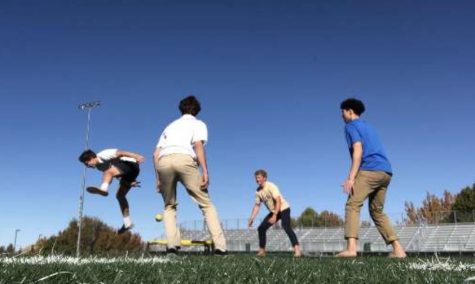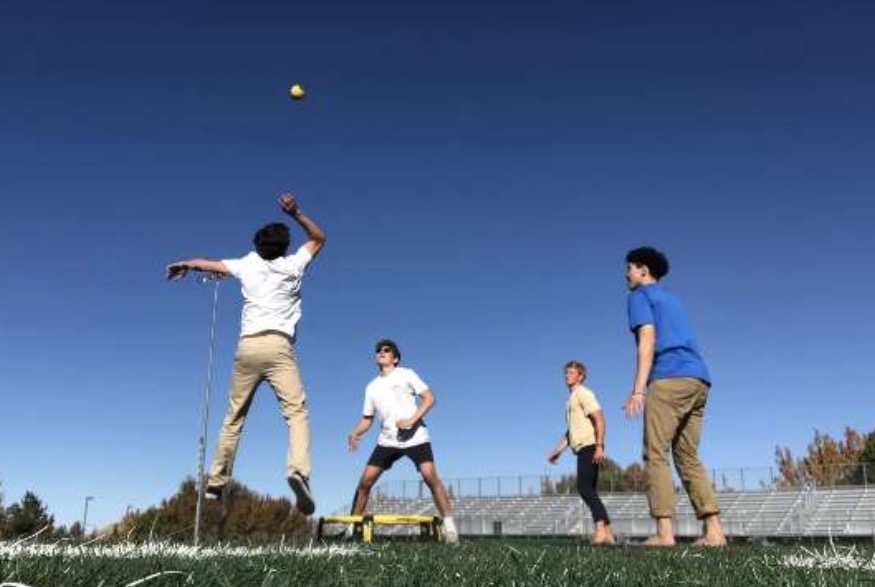Spikeball: Manogue’s Newest Phenomenon
Ben Ferro leaps into the air to smack the ball down on his opponent. Photo courtesy of Gabe Bansuelo.
November 8, 2018
Just when you think you’re the ultimate sports aficionado, then comes Spikeball. It’s one of the newer clubs on Bishop Manogue’s campus and its popularity is gaining fast.
The sport of Spikeball, aka roundnet aka “that yellow trampoline game” aka “if volleyball and foursquare had a baby” aka “enough with the wit I’d like to read the rules,” is an easy game to play. Only 4 players are required (two two-person teams) and you can play anywhere: backyard, campground, beach, gym floor, you name it. Once players get a feel for the ball (~10 minutes) solid rallies, spikes and celebratory high fives quickly follow.

The game consists of a palm-sized rubber ball and a hula-hoop sized, trampoline-like net placed a few inches off the ground. One player starts a point by serving the ball down onto the Spikeball net so it ricochets up at his/her opponents. The returning team has up to 3 hits between them (think bump, set, spike) to return the ball back onto the net. The rally continues until a team can’t return the ball onto the net within their three touches. The object of the game is to hit the ball into the net so that the opposing team cannot return it. If one misses the net or accidently hits the rim it’s an automatic point to the other team, causing the other team to serve. First team to 21 points, wins.
According to the club’s senior leaders, president Brayden Debruin and vice president Gabe Bansuelo, the game requires both activity and mental strength. There are around twenty members in the club, making about ten duos. Many sophomores have joined the club, which means that it will probably continue for the next following years. They usually meet twice a month and play on the football fields or somewhere else on campus.
The game was first played in the 1980s when Spikeball founder and CEO Chris Ruder bought a makeshift net from Toys R Us. Now Ruder is pushing for Spikeball to become a worldwide, competitive sport.
For now, deBruin and Bansuelo are leading the charge at Manogue. This club is “fun,” they say, and students should consider joining it!

